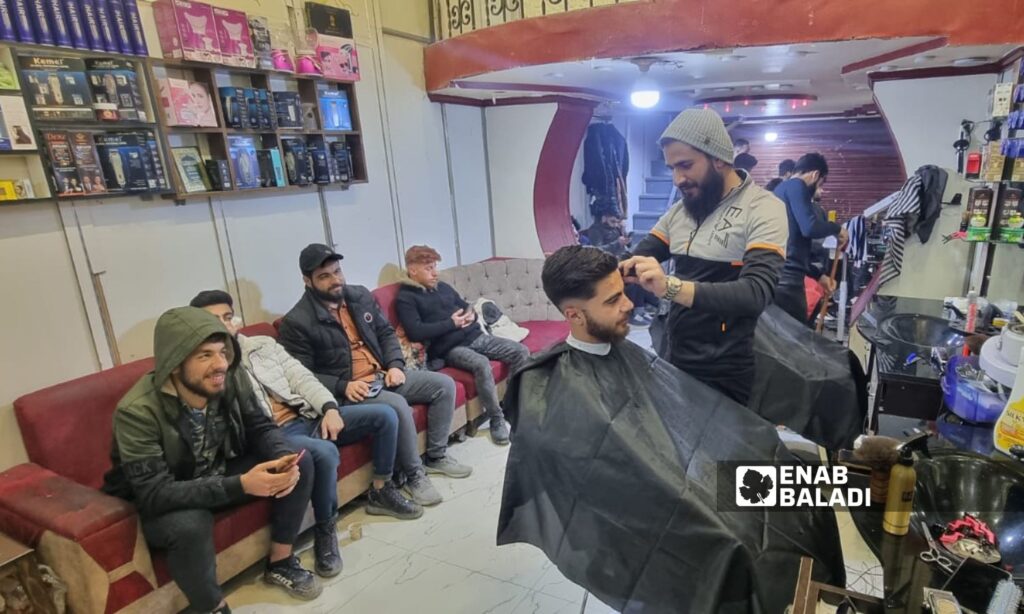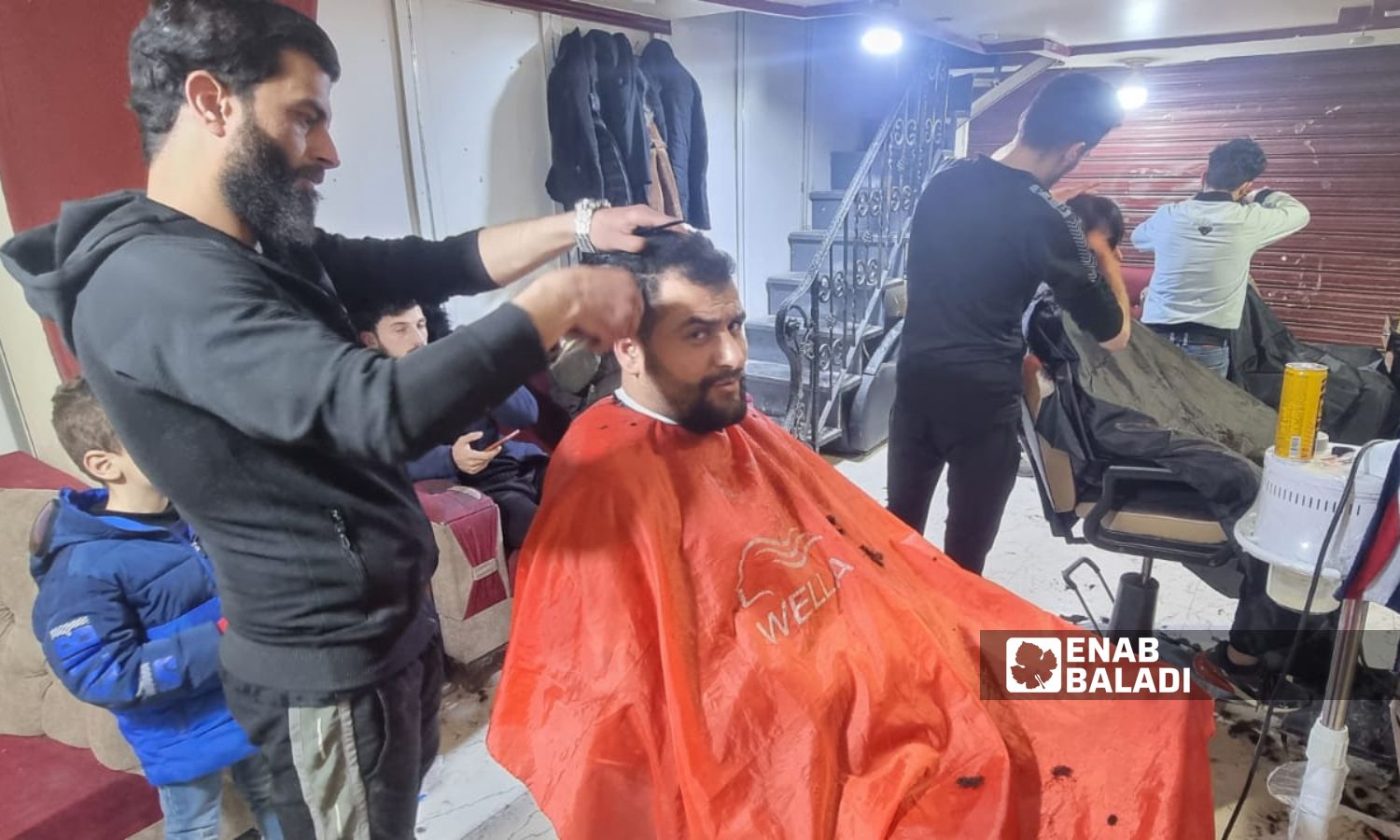In the city of Idlib, barber shops experience a rush during the last two days of Ramadan, with most continuing to work until the Eid Takbeerat and the early hours of the morning. This is a common situation in many areas of Syria.
In rural areas, haircut fees start from 20 Turkish lira (approximately $0.8), while in the city of Idlib they may reach 150 lira (nearly $5), varying depending on the service and operational costs involved, which equates to a day and a half’s worth of daily wage labor.
Compared to living standards and workers’ wages, barber’s fees are considered high. The daily wage for a worker, in the best scenario, is 100 Turkish lira (about three US dollars), while the recognized poverty threshold is 10,843 lira and extreme poverty is pegged at 8,933 lira.
Reservation first
Hatem Haj Sulaiman, a 35-year-old, called one of his barber friends to book an appointment to avoid long waits. He likened barbers to doctors during the Eid holiday season to Enab Baladi.
He mentioned that barbers only welcome customers by appointment due to the high demand. Therefore, it is critical to confirm the reservation and arrive at the barber shop before the scheduled time; otherwise, customers may endure long waiting hours.
According to a survey by Enab Baladi of several barbershops, booking is essential for serving customers during the Eid period, to organize work, gain customer satisfaction, and prevent others from wasting time waiting.
Clients’ desires in barber shops vary according to their financial means. Some are content with just a haircut and beard trim, others only the hair, while others prefer a full service including hair care and skincare treatments.
From 50 to 150 Turkish lira
Barbers interviewed by Enab Baladi cited the high cost of materials, cosmetics used, electricity, and shop rent, which vary from one location to another as reasons for the high haircut fees.
Mohammed al-Zeer, owner of “Comb and Scissors” salon on a main street in Idlib, told Enab Baladi that he opened his shop 13 years ago and has three barber chairs, adding two more during holidays to accommodate all customers.
Al-Zeer considers haircut fees reasonable for client demands; for instance, a haircut costs 50 lira, beard trimming is 25 lira, and an additional 20 lira for each service requested by the customer (skin cleaning, etc.), bringing the total cost for a haircut with all services, including blow-dry, skincare, and shaving, to 150 lira.
Al-Zeer believes the fees are appropriate compared to the past, though the barbers sometimes have to reduce them to align with local labor wages, noting that current haircut prices are based on costs, without a fixed standard.
High operating costs
Al-Zeer relies on electricity in his shop having replaced the solar panels he once used. He adds that utility bills are high, and he pays monthly rent for the salon of 225 US dollars.
He also spends up to 300 US dollars per month on skincare products, shaving creams, and wax, excluding amounts spent on equipment maintenance.
On the other hand, Mahmoud, another barber in Idlib, was forced to close his shop due to high salon rents and chose to work in another salon as a paid employee. He also cuts hair for his clients at their homes or during events.
Mahmoud told Enab Baladi that the lowest rent for a shop in a neighborhood of Idlib is 100 US dollars, which is high compared to haircut earnings, besides other expenses on workers, equipment, and maintenance.
In Idlib’s barber shops, it is customary that a barber’s wage from each customer served equals half of the service charge. Therefore, salon owners prefer not to employ workers unless during peak times, such as during festive occasions.












